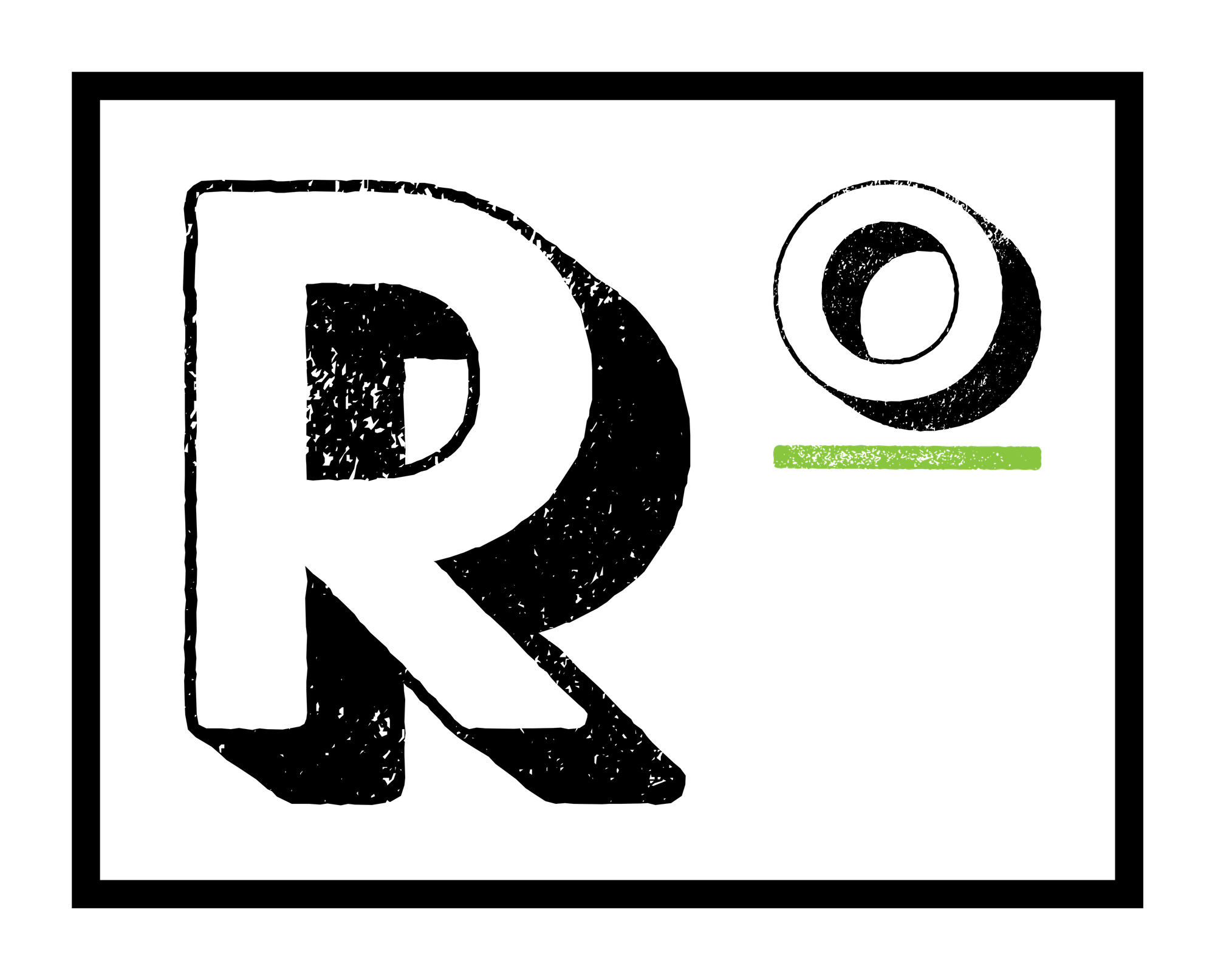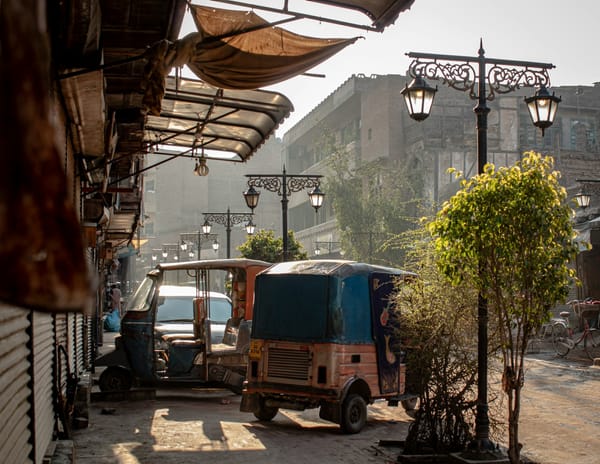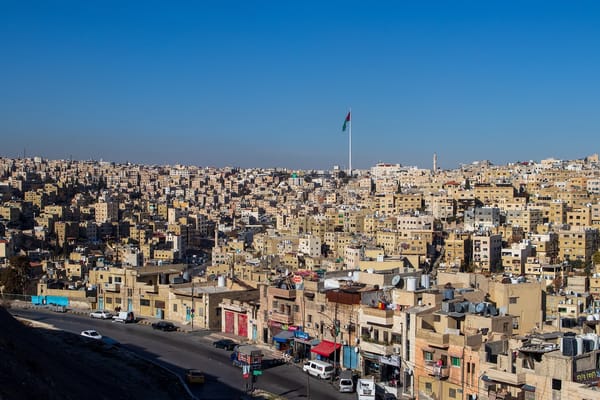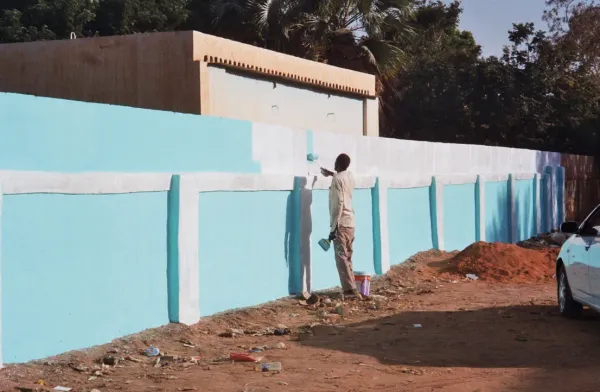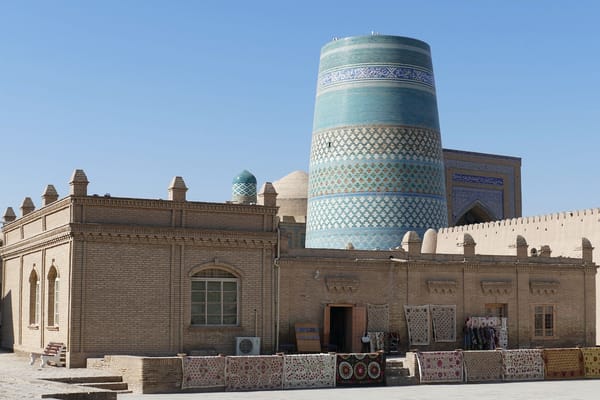Cashi: building Sudan's fintech OS against all odds
By Nina Saeed
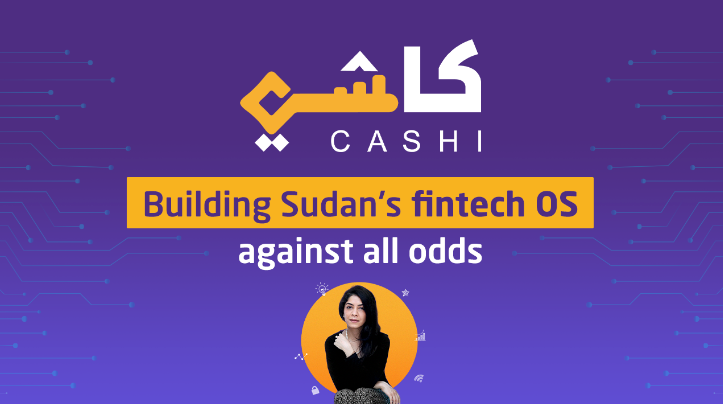

About this op-ed’s author:
Nina Saeed is the founder of alsoug, Sudan’s digital classifieds and marketplace. On top of alsoug, Nina has launched Cashi, one of Sudan’s leading fintech platforms. Cashi today has transformed more than 10,000 merchants across Sudan into mini-banks for their neighborhoods, serving communities across this vast and neglected country.
She has raised over $6M in funding and is a paramount force in her country’s young tech ecosystem.

The Realistic Optimist is a subscriber-funded publication.
This allows for deep, nuanced and sponsor-free articles.

The harder the problem, the stronger the moat
A couple of years into alsoug, Sudan’s first digital classifieds and marketplace, we hit a wall. We realized that until we built an adequate payment infrastructure, we would be hindered in both the scaling and monetization of the platform. That’s what we set out to do, with Cashi.
In its simplest of forms, Cashi is a piece of software that turns a small merchant into a mini-bank. These agents are generally small convenience stores who benefit from becoming one of their community’s banking nodes. Cashi merchants (known as Cashi Points) provide their community with a broad range of services including bill payment, local remittances, cash in and cash out from bank cards and mobile wallets, and receipt of humanitarian cash transfers.
Cashi Points can also accept card and wallet payments for the other goods and services they sell. Sometimes, the Cashi software sits on a traditional POS machine, and sometimes it is just an app on a mobile phone. We also recently launched a consumer wallet, MyCashi, to supplement the merchant network and encourage payments interoperability.
As Sudan remains a cash-reliant society, the Cashi Points network serves as a means to bring cash into the formal economy - a rail which serves anyone who wants money collected or moved. We see as our mission the development of a payment infrastructure that ultimately super-charges the banking services offered by mainstream payments players, be they banks, telcos or perhaps in the future, other startups. We want to add our skills to those alongside us. Where we have strength, we want to help make others stronger. Cashi is about platforming and extending access.
We’re building something very similar to what Fawry has in Egypt. They happen to be one of our investors.
Building Cashi is tough, but worth the pain. Until Omar al-Bashir’s toppling in 2019, Sudan had been blocked off from the global tech scene due to a constraining sanctions regime. The result is that the country’s entire digital payments infrastructure lagged far behind neighboring countries like Kenya or Egypt. Sudan truly is one of the last frontiers for digital payments, with a very substantial amount of the population remaining unbanked / cash-dependent, and an extremely nascent tech ecosystem. That introduces many challenges.
While growing alsoug ushered in a classic “chicken-and-egg” marketplace challenge, pushing Cashi’s usage required us to go offline and send teams to convert future merchants “by hand”. Having boots on the ground introduces a new layer of operational complexity, as your teams now deal with the physical reality. In a country undergoing a civil war, the predicaments they face are unsurprisingly daily and numerous.
These operational impediments are complemented by others: local payments players’ initial suspicion of our product, a telecom infrastructure in need of investment, stringent regulation and the difficulty of converting a bank-wary population (hence the prevalence of cash).
Those hardships are exactly what makes our business case so strong. Building the base infrastructure on which others will rely is a tried-and-tested business model. The most telling proxy is telco companies: it’s expensive and lengthy to build, but once a company gets it right, they become hard to displace. Sudan’s telco companies have historically done very well by becoming indispensable to the country’s functioning. We believe that with time, Cashi can get to a similar position by providing an essential service that empowers other businesses.

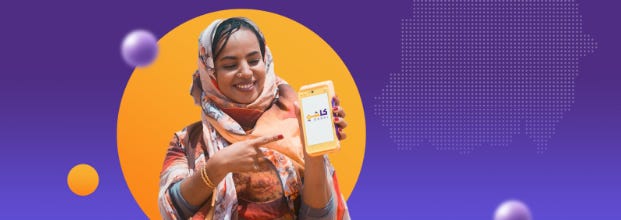

Scaling during a war
Since Al-Bashir’s fall, Sudan has faced internal turmoil as a strong popular movement strived to transition the country to democracy and civilian leadership. However, in overly simplified terms, disputes over security sector reform between the national army and a para-military force created under the Bashir regime spiraled into violent armed conflict, with the Sudanese people caught in the middle. The ensuing fighting has been disastrous on both a human and economic level. Despite the overarching chaos, we’ve had to figure out a way to keep operating and growing.
War, despite challenges, makes us stronger. We find deeper meaning to what we are building. Payments matter, but humanitarian aid also matters, even access to airtime to call your loved ones, matters. This is ‘mission critical’ not only for users, but for the country. It is as much an opportunity as a moral obligation.
This commitment from the Cashi team (local and global) is what makes this business. The war has caused many of our team members to endure extremely painful personal trauma. As founders, we’ve had days where we’re not only trying to make sure that our employees are thriving but also safe on the most basic, physical level.
War is also marked by an overwhelming feeling of loss. Loss of loved ones you can no longer see, loss of a country you no longer recognize, loss of a quality of life you no longer enjoy. What we’re doing with Cashi is the opposite of loss: we’re building, creating value, and acting as a cornerstone for communities. When Sudan’s major banking apps went dark, Cashi’s platforms kept running and supporting the Sudanese people, including helping send money to those desperately trying to flee brutal violence.
That’s how we try to maintain morale within the business: what we’re building is crucial to our fellow humans. We have no choice but to continue.
Dealing with inflation and devaluation
Sudan’s hyperinflationary environment obviously doesn’t make our work any easier - nor does the unstable currency. We try to manage this as best we can. It is not just a Sudan problem and it is not just an African problem. It is a reality of emerging markets and now, even many developed markets.
The unstable economy we operate in translates to me spending more time on finances than another founder in a more developed market would. I don’t know of many pre-Series A startups that have a fully dedicated treasury team working on managing the company’s liquidity.
We do all our accounting in USD, which keeps us grounded in ‘reality’. As far as risk-mitigation techniques go, they include hedging, product diversification, mixing fixed and percentage-based fees, frequently updating our pricing, etc.. Learning how to handle these types of issues comes from time in the trenches unfortunately, but it’s these small tactics that make-or-break businesses in markets like this.



Convincing investors
To the untrained eye, investing in a fintech startup operating in a warring country seems to bring about additional risks. I would argue two things. First, it is an extremely heavy lift but this is our moat. Opportunity lies here because no one else wants to do it. This is a platform at the intersection of offline and online. Platforms like this are hard to build anywhere, but difficult to dislodge once built, even more so in difficult macro-environments. Second, we think venture capital is about enabling the leap needed to build the future you want to see. Sudan has a digital future, and the venture capital that funded Cashi is making that possible.
Before marketplaces or anything else, people need to be able to pay. We do not think this is a ‘risky’ vision and we have seen the playout across this world. Is this hard? Sure. Is there execution risk? Absolutely. But we believe this to be relatively more in our control than many, many other risks in this world.
The very fundamentals of what we’re building aren’t revolutionary. If anything, it’s been long established that laying the CICO (Cash-in, Cash-out) infrastructure for any national market generally renders a lucrative business, if done right. Getting it right is, admittedly, the hard part but so far we’ve shown we’re up to the challenge.
Our investor base is diverse, world-class and spans multiple continents. They benchmark us against global players. They all have the similarity of being thoughtful and considered. They are not the type of people to get turned off by a headline, a useful trait considering Sudan’s media coverage. They see the bigger picture. Interestingly enough, I’ve found family offices to be some of the more adventurous investors, as their investments contain a “legacy” component on top of the more prosaic financial one.



Hope for Sudan
As stated at the beginning of the piece, Sudan is truly one of the last frontiers for digitization of a national economy. While the embryonic tech ecosystem’s infrastructure has been battered by the war, the very opportunities undergirding the ecosystem’s early rise remain. This is a country of ~50 million people, full of natural resources and one of the highest concentrations of arable land in the world (top 20 or so). This autumn season, war or no war, Sudan has had one of its best agricultural harvests. Yet, communities across the country still lack access to basic financial services.
I wonder if there are even any ATMs left functioning after the war (there were never many to start). Digital payments are not a nice to have, they are an essential tool to participate in the global technological revolution. Cashi’s first mission is tackling the basics - digitizing cash. From that base, we are building a country-leading solution that benefits all stakeholders. And this is as much about contributing to improving existing technologies as it is about improving financial experiences for our partners, our users, and our merchants, and ultimately unlocking an online future for Sudan’s economy.
We have hope for Sudan, but we are also an active driver of hope. We make wheels turn for a forgotten people. That means being the rails for humanitarian aid, as well as for remittances and bill payments. Cashi is an active agent in Sudan’s future.
On a very personal level, I remain hopeful for Sudan. Hopeful because despite the war, the human quality and entrepreneurial spirit diffused throughout the Sudanese population isn’t going anywhere. Hopeful, because Sudanese companies such as DAL Group have proven that they could scale, and in Dal’s case specifically, list on a public market. Hopeful, because amidst the current pandemonium, I can cautiously sense Sudanese society getting back on its feet.
The Realistic Optimist’s work is provided for informational purposes only and should not be construed as legal, business, investment, or tax advice.

Continue your reading with this relevant piece from the Realistic Optimist:
The story of Presto, Libya's most funded startup
Timothy Motte • May 18, 2023
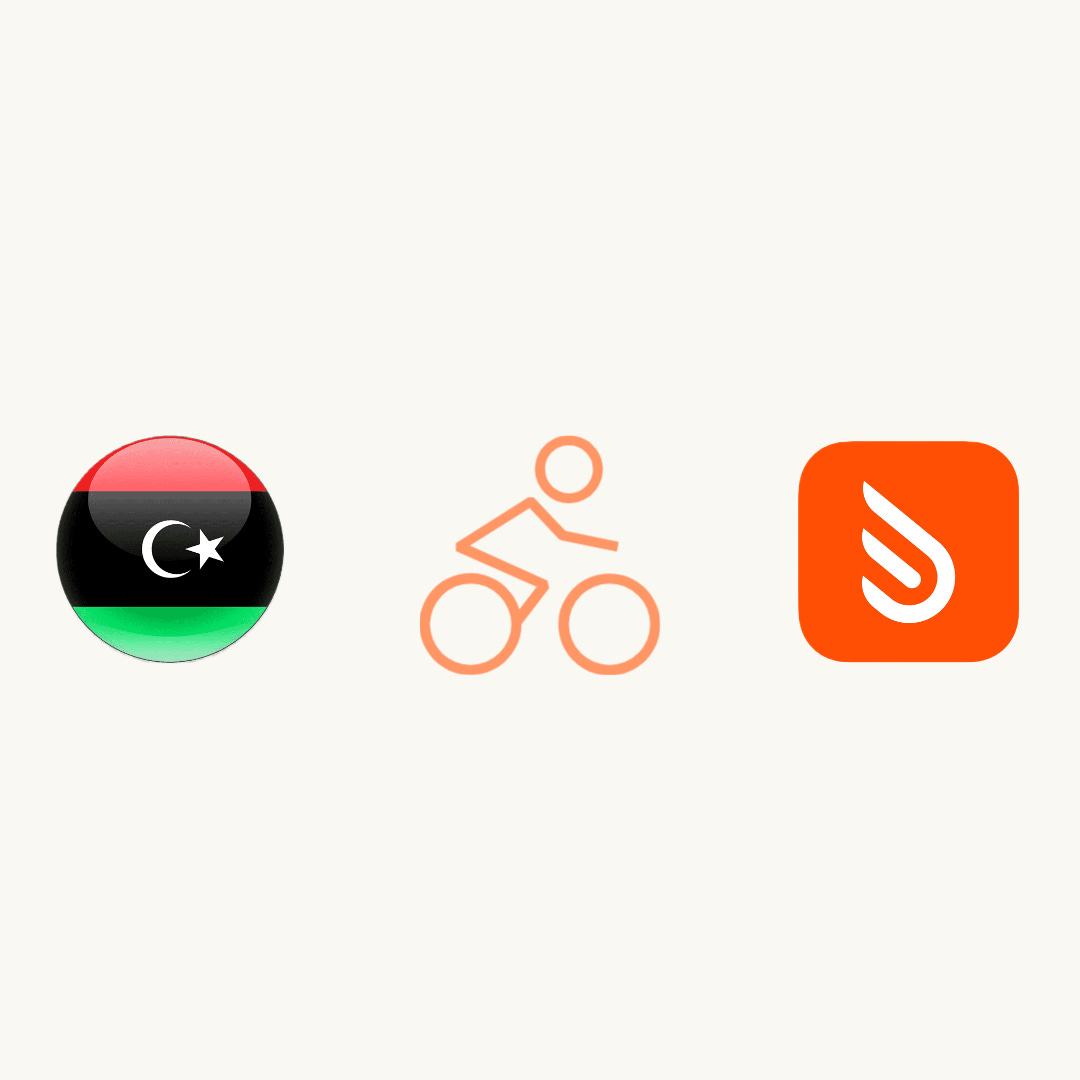

Know someone who would gain value from this piece? Feel free to share.
